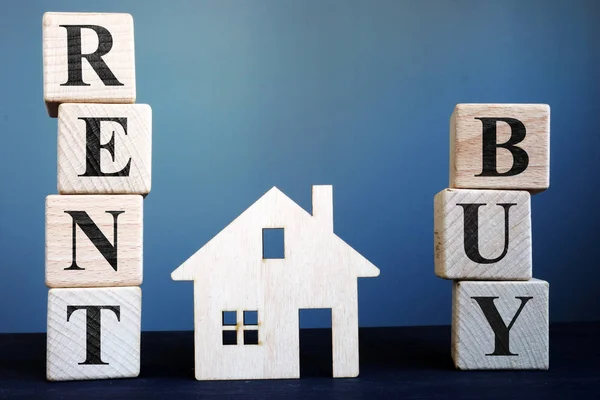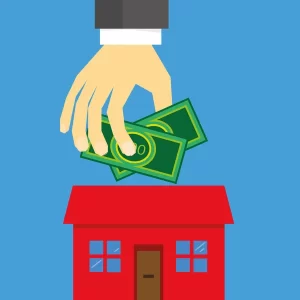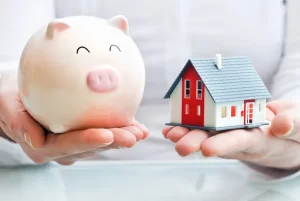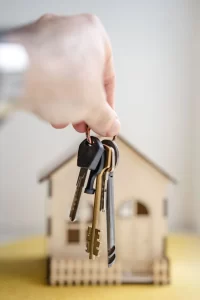Buying a home is a big decision for anyone, especially first time home buyers. There are many different options available and it can be difficult to determine which one is right for you. In this blog post, we will take a close look at the pros and cons of renting vs. buying a home to help you make an informed decision about which option is best for your lifestyle and budget.
The Pros of Renting a Home
Renting a home offers several advantages that make it an attractive option for many individuals. One of the primary benefits is the flexibility it provides. Renters have the freedom to move to a new location or upgrade their living space without the hassle of selling a property. Renting also requires less upfront cost, as there is no need for a large down payment or expensive closing costs. Maintenance and repair responsibilities are typically the responsibility of the landlord, alleviating the financial burden and time commitment associated with homeownership. Additionally, renters may have access to amenities such as pools, gyms, and playgrounds that they might not be able to afford in a home of their own. Overall, renting can offer a more affordable, flexible, and low-maintenance housing option for those who prioritize convenience and financial flexibility.
The Cons of Renting a Home
While renting a home has its advantages, there are also some downsides to consider. One major disadvantage is that renters do not build equity in a property. Each month, the money spent on rent is essentially gone, with no long-term investment potential. Additionally, rent prices can increase over time, making it difficult to budget and plan for future expenses. Renters also have less control over their living space, as they must adhere to the rules and restrictions set by the landlord. This lack of control can limit personalization and make it difficult to truly feel at home. Finally, renting can sometimes feel temporary and uncertain, as landlords may choose not to renew leases or may decide to sell the property, leading to potential instability in housing.
The Pros of Buying a Home
Buying a home comes with several advantages that make it an appealing option for many individuals. One of the primary benefits is the potential for building equity. Unlike renting, where the money paid in rent is essentially gone, homeowners have the opportunity to accumulate wealth through property ownership. Additionally, owning a home provides a sense of stability and permanence, as homeowners have control over their living space and can personalize it to their liking. Homeownership also offers tax benefits, such as deducting mortgage interest and property taxes. Furthermore, homeownership allows individuals to establish roots in a community and potentially benefit from any appreciation in the property’s value. Finally, owning a home can provide a sense of pride and accomplishment, as it is a significant milestone and an investment in the future.
The Cons of Buying a Home
Buying a home also has its downsides that should be considered before making a decision. One major disadvantage is the upfront cost and financial commitment involved. Purchasing a home requires a significant down payment, as well as closing costs, which can be a significant financial burden for many individuals. Additionally, homeownership comes with ongoing expenses, such as property taxes, insurance, and maintenance, that can add up over time. Another downside is the lack of flexibility. When you own a home, you are tied to a specific location and it can be more difficult to relocate if needed. Homeowners also bear the responsibility of repairs and maintenance, which can be time-consuming and costly. Finally, the housing market can be unpredictable, and the value of your home may decrease, leading to potential financial losses.
Factors to Consider when Deciding to Rent or Buy
When deciding whether to rent or buy a home, there are several important factors to consider. Firstly, think about your long-term plans. If you anticipate moving frequently or are unsure about settling down in a particular area, renting may be the better option for its flexibility. On the other hand, if you plan to stay in one place for a longer period of time, buying a home can provide stability and potentially save you money in the long run. Consider your financial situation as well. Are you able to afford the upfront costs of buying a home, such as the down payment and closing costs? Can you handle the ongoing expenses of homeownership, including property taxes, insurance, and maintenance? Evaluate your budget carefully to ensure you can comfortably handle the financial responsibilities that come with buying a home. Additionally, think about your lifestyle and preferences. Do you value having control over your living space and the ability to personalize it to your liking? Are you willing to take on the responsibilities of maintenance and repairs that come with homeownership? Consider whether you prefer the convenience and low-maintenance nature of renting or the autonomy and pride of owning your own home. Lastly, research the housing market in your desired area. Look at trends in home prices, interest rates, and rental rates. Consider whether it’s a buyer’s market or a seller’s market and how that may impact your decision. Taking all of these factors into account will help you make an informed decision about whether to rent or buy a home that aligns with your lifestyle and financial goals.





